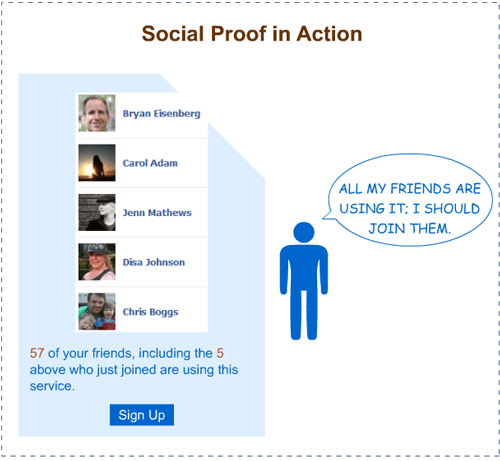How to Amplify Social Proof to increase your persuasiveness
This is part of the ‘Lessons in Persuasion’ series. Each post is a concise blurb on how you can be more persuasive in your interactions with people. If you have any thoughts to share, please leave a comment or response below – or contact me.
In the last post we saw that Social Proof can have a profound effect in helping increase your persuasiveness . It’s a known fact that human beings are social animals, and it’s in our nature to do what others are doing, or let others’ actions guide our own. However, when 2 (or more) groups are competing with each other in an attempt to sway a common target to their divergent points of view, which group is likely to have the most profound effect in persuading the target? Conversely, which herds are people most likely to follow? The short answer is, the herd that they perceive to be most like them.
People are more influenced by a herd that they perceive to be more like them (a herd that looks like them, acts like them, has shared a similar experience, etc). There’s no rational reason to believe that a person that has experienced the same thing you are going through now would have an influence on your behavior, even if you share nothing in common with that person – but it’s observed to be true, and it happens.
It is usually beneficial for us to follow the behavioral norms associated with the particular environment, situation or circumstance that most closely matches our own. When you’re at a public library, you typically tend to follow the norms of other library patrons, by quietly browsing through the books and whispering when you need to say something. You certainly do not act like you’re at a bar, crushing books against your forehead.
How can we utilize these principles? We already saw the importance of client testimonials in trying to sway people’s opinions in your direction. To take things a step further, the more similar the person giving the testimonial is to the target audience, the more persuasive the message becomes. It follows that it becomes all the more important to decide which testimonials to show to a prospect based on the prospect’s own situation or circumstance, NOT the one that you’re the most proud of.
If you’re pitching to the owner of a social media company, he’d be more likely to buy into your point of view or purchase your product or service if you demonstrated how your software had helped other social media companies (versus how your software has helped a fortune-100 company in the transportation sector).
The thinking goes like this:
- “If others like me have gotten good results with this product, then it should be right for me, too“.
- “If others like me are doing this, then I should probably do it, too“.
 Sr. Director of Product Management and Head of UX at
Sr. Director of Product Management and Head of UX at 